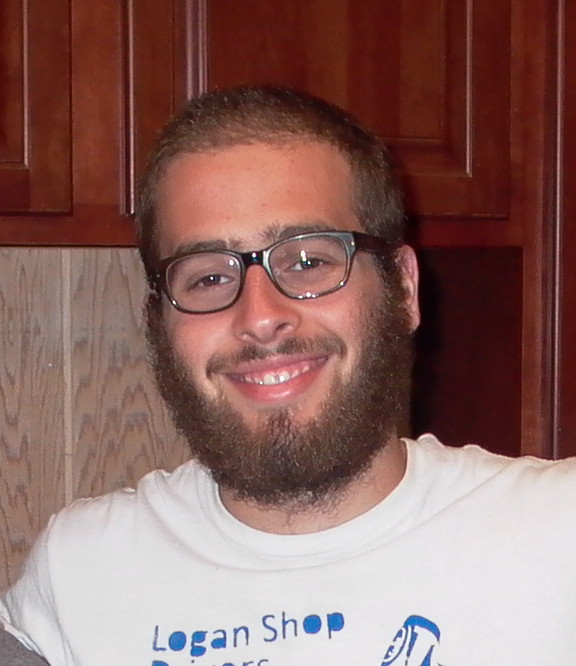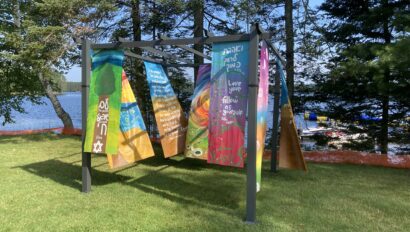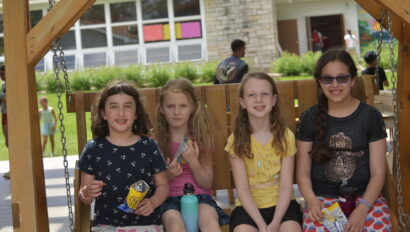Reflections on Parashat Naso by Ari Feldman
This June will mark ten years since my first summer at Camp Ramah. That first day of camp, an idyllic Northwoods kind of day, my counselors brought me and my bunkmates to the picnic table between the lake and (what was then) the Halutzim cabins. Brett and Mordy talked to us a bit about camp basics, for those who, for lack of older siblings, were not yet in the loop.
We also went around and tried to learn one another’s names. A trend we noticed fairly early on was that, of the twelve-or-so boys in the bunk, there was a twenty-five percent chance that any one of them would be named Ari. We moved quickly from given names to nicknames. One of the other Ari’s asked me what my last name was, so I told him, and he in turn told me that my nickname would be “Feldy,” probably just to keep things simple—it had been a pretty hectic day.
Anyways, the name stuck. I’m still Feldy to somewhere between four and thirty-three people in the world. And I’m okay with that—as nicknames go it’s pretty tame. It doesn’t tell you much about me, except maybe that my last name has “Feld” in it somewhere.
This week’s parashah is Naso, the longest parasha in the Torah, in which we read about adulterous women, laws of leprosy, and the finer points of being a nazirite. We are also introduced to the priestly blessing, birkat hakohanim, associated in Jewish custom with the shalosh regalim—Pesach, Shavuot and Sukkot—and the High Holidays, and in popular culture with the Vulcan salute.
I’ve heard this blessing every Friday night since before I could even make memories; when I re-read Naso this past week I almost glossed right over the section on the birkat hakohanim due to its almost mundane place in my life. But, because I’ve been thinking incessantly about camp—and, subconsciously, about the prospect of being called Feldy on a regular basis once again—the sentence right after the blessing caught my eye: “Thus will they bestow my name upon the Children of Israel so that I may bless them.”
That’s funny: didn’t God just dictate the blessing? If the blessing isn’t the blessing, what is?
The name, of course. The name of God in question is the name, the tetragrammaton—the “articulated name,” as the Rambam has it—the one we no longer know. After the corruption of the Jewish people, he relates in The Guide of the Perplexed, the Sages made a divine secret of the name, or at least of its proper pronunciation. That way the name could survive even if purity did not within the people as a whole. And they would utter it at the proper times during the year, but in such a way that it could not be heard, interpreted or corrupted.
Anyways, it was lost.
It’s important to make a name for yourself, whether that’s a specific name, like Feldy, or a reputation as someone who is kind, well-spoken, shrewd, patient, peaceable, or any other beautiful quality. Identifying a name with a certain place or time from your life forms, as the Sages clearly understood, a holy bond between points in history and the present. Nicknames aren’t for everyone, because sometimes the one your parents gave you is good enough, or at least far enough removed from the Jewish name zeitgeist that like a quarter of Jewish millenials don’t all turn their heads when your mom is trying to figure out where you are on the kikar during Visitors’ Day. But making a name for yourself at camp in the more traditional, Pirkei Avot sense of the word will allow you to always have a way back: invoke your name, in however nebulous a form it has taken, and you are transported.
In the case of my uncreative nickname, it has in many ways served the function of a divine secret: it’s known to few and yet summons me strongly to a particular place in my history. All I have to do is hear it or speak it or even think it and I’m back at camp, and that’s a blessing.






